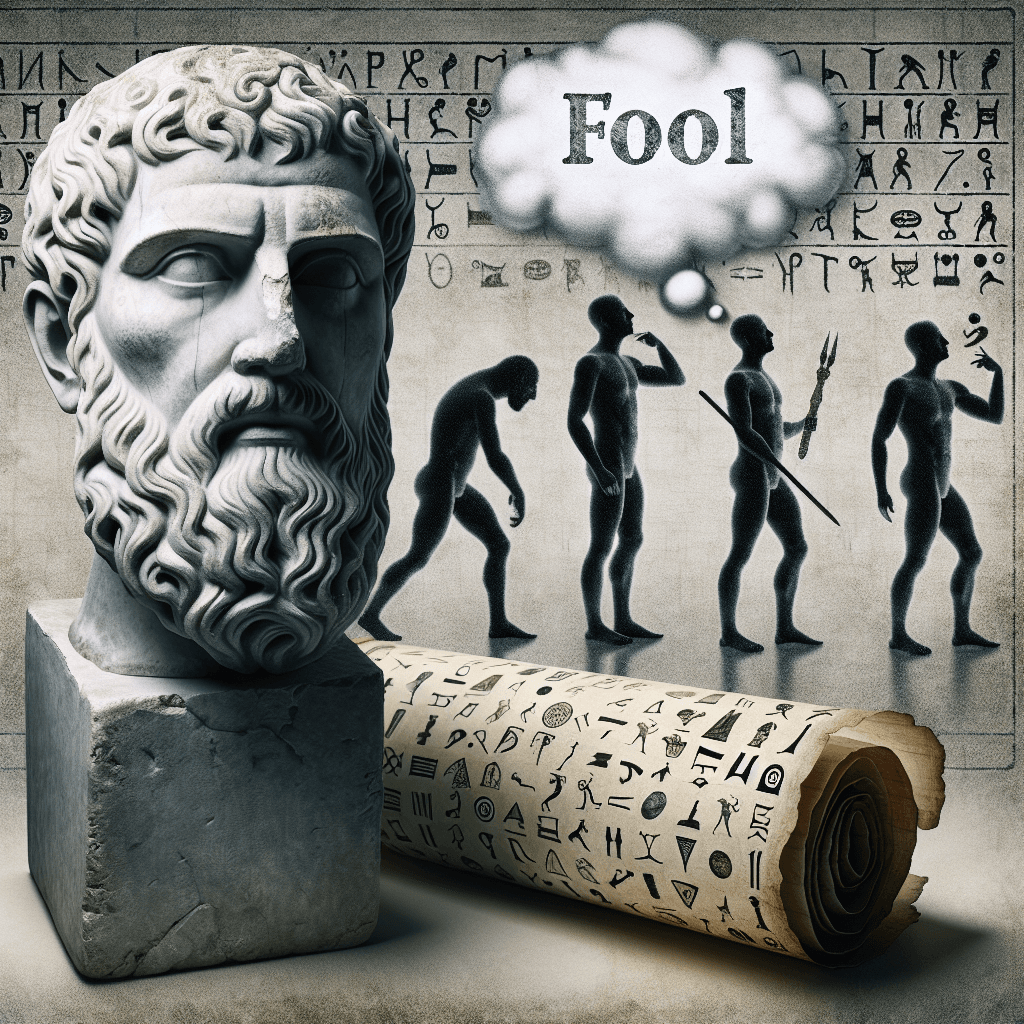Why was a brilliant philosopher's name twisted into the modern word for a fool
He was a celebrated intellectual giant, yet a centuries-long smear campaign by his academic rivals twisted his very name into a common insult for a fool.


Too Long; Didn't Read
TLDR: The word dunce comes from John Duns Scotus, a brilliant medieval philosopher. Later thinkers who rejected his complex ideas mocked his followers, the Dunsmen, as being resistant to new knowledge. The name stuck as an insult for a slow or stupid person.
From Scholar to Simpleton: Why Was a Brilliant Philosopher's Name Twisted into the Modern Word for a Fool?
Have you ever called someone a "dunce" or seen the iconic pointed cap used as a symbol of foolishness? It's a term so ingrained in our culture that we rarely stop to think about where it came from. The answer, however, is a fascinating and ironic twist of history. The word "dunce" is not just a random insult; it’s a corruption of the name of one of the most brilliant and influential philosophers of the Middle Ages. This post will unravel the incredible story of how the name of a celebrated scholar, John Duns Scotus, was transformed into a synonym for a fool.
Who Was John Duns Scotus? The "Subtle Doctor"
Long before his name was ever associated with ignorance, John Duns Scotus (c. 1266 – 1308) was a towering intellectual figure. A Scottish Franciscan friar and one of the most important philosophers of the High Middle Ages, his mind was so sharp and his arguments so nuanced that he earned the esteemed title Doctor Subtilis, or the "Subtle Doctor."
Scotus taught at the most prestigious universities of his time—Oxford, Paris, and Cologne. His work delved into complex questions of metaphysics, ethics, and theology. He was a master of scholasticism, a method of learning that emphasized logical reasoning and meticulous debate. His followers, known as "Scotists" or "Dunsmen," were respected across Europe for their intellectual rigor.
His key contributions included:
- The Univocity of Being: The idea that fundamental concepts, like "being," apply to God and creatures in the same way, though to different degrees.
- The Formal Distinction: A way of distinguishing between different aspects of a single thing without dividing the thing itself.
- Defense of the Immaculate Conception: He famously constructed a sophisticated theological argument for the belief that the Virgin Mary was conceived without original sin.
For centuries, to be a Dunsman was to be at the cutting edge of philosophical thought. So, what went so terribly wrong?
The Renaissance Shift: A Clash of Ideas
The answer lies in a major cultural and intellectual upheaval: the Renaissance. Beginning in the 14th century, a new wave of thinkers known as humanists began to challenge the established scholastic traditions. Humanists championed a return to the classical literature and art of ancient Greece and Rome. They valued clear, elegant prose and practical, human-centered questions over what they saw as the overly abstract and needlessly complex debates of the scholastics.
The humanists and the Scotists were on a collision course. The humanists viewed the intricate, hair-splitting arguments of the Dunsmen as outdated and irrelevant. They ridiculed the scholastics for debating esoteric questions while ignoring the vibrant new world of art, literature, and science emerging around them. To the humanists, the Dunsmen were stubborn traditionalists, clinging to the dusty past and resisting progress.
From "Dunsman" to "Dunce": The Birth of an Insult
This intellectual rivalry is where the name's transformation began. Humanist writers and critics in the 16th century started using the term "Duns" or "Dunsman" as a term of mockery. It became shorthand for someone who was incapable of new learning and stubbornly focused on pointless, trivial details. A "Dunsman" was an enemy of progress, a nitpicker who couldn't see the forest for the trees.
The insult stuck. The Dunsmen were characterized as dull, pedantic, and slow-witted. Over time, the name evolved into the common noun we know today: "dunce." The pointed cap, now infamous as the "dunce cap," is also believed by many historians to have been twisted from an academic or religious cap worn by Scotists into a symbol of public humiliation for slow learners. The very thinkers once celebrated for their subtlety were now the poster children for stupidity.
Conclusion
The journey of the word "dunce" is a powerful lesson in how history is often written by the victors. John Duns Scotus was a brilliant philosopher whose ideas shaped Western thought for centuries. However, he and his followers found themselves on the losing side of a monumental intellectual battle against the rising tide of Renaissance humanism. Their critics effectively weaponized their name, twisting a legacy of profound intellect into a lasting symbol of foolishness. The next time you hear the word "dunce," remember the ironic and complex history behind it—a tribute to a forgotten genius and a reminder that even the brightest names can be tarnished by the tides of change.


